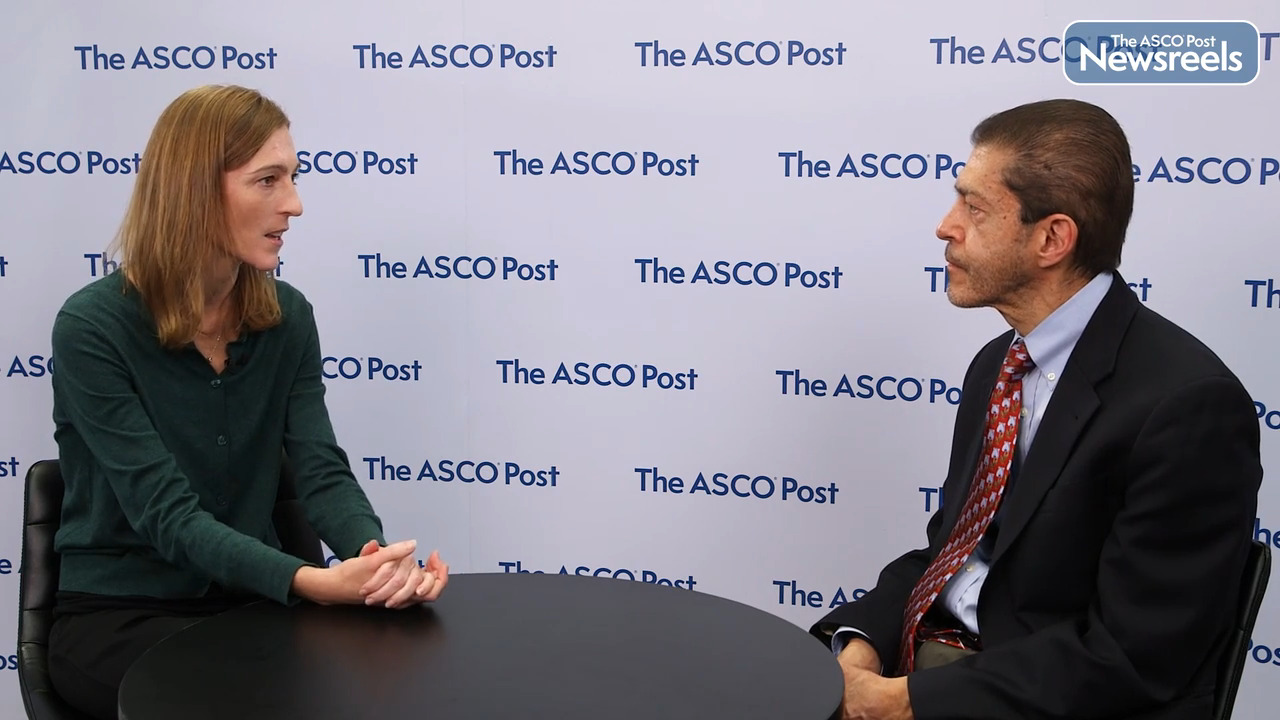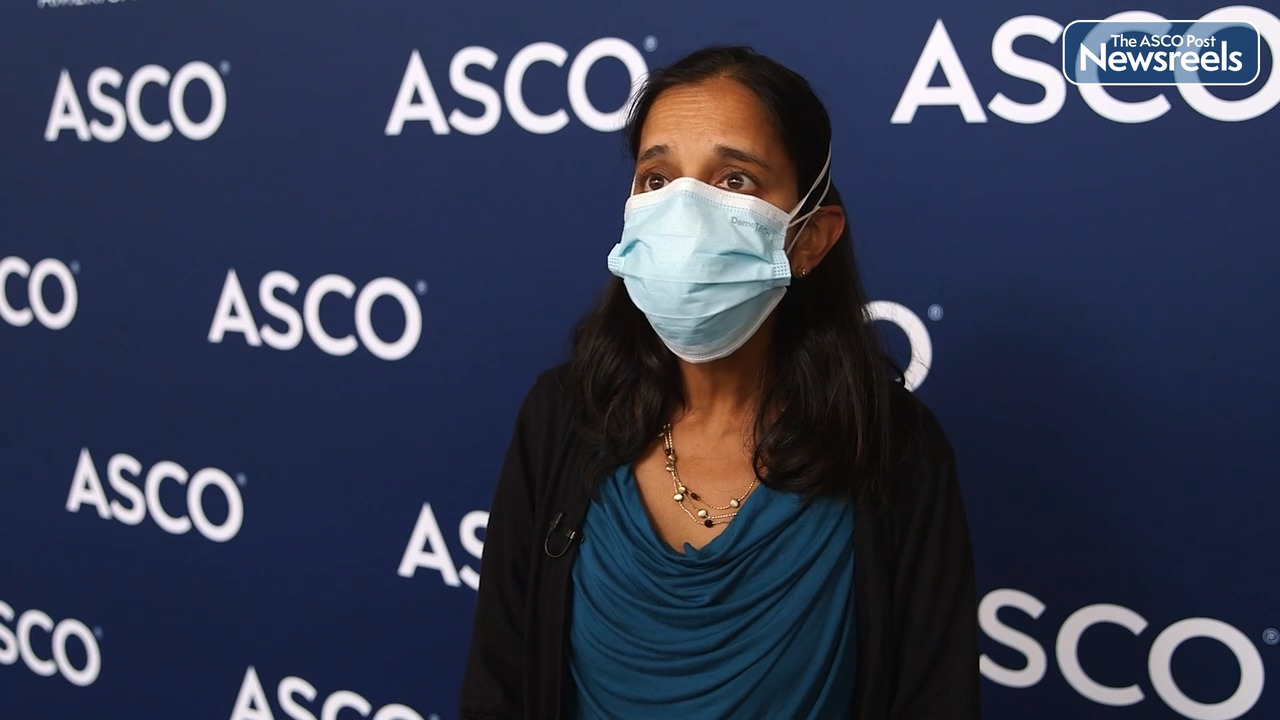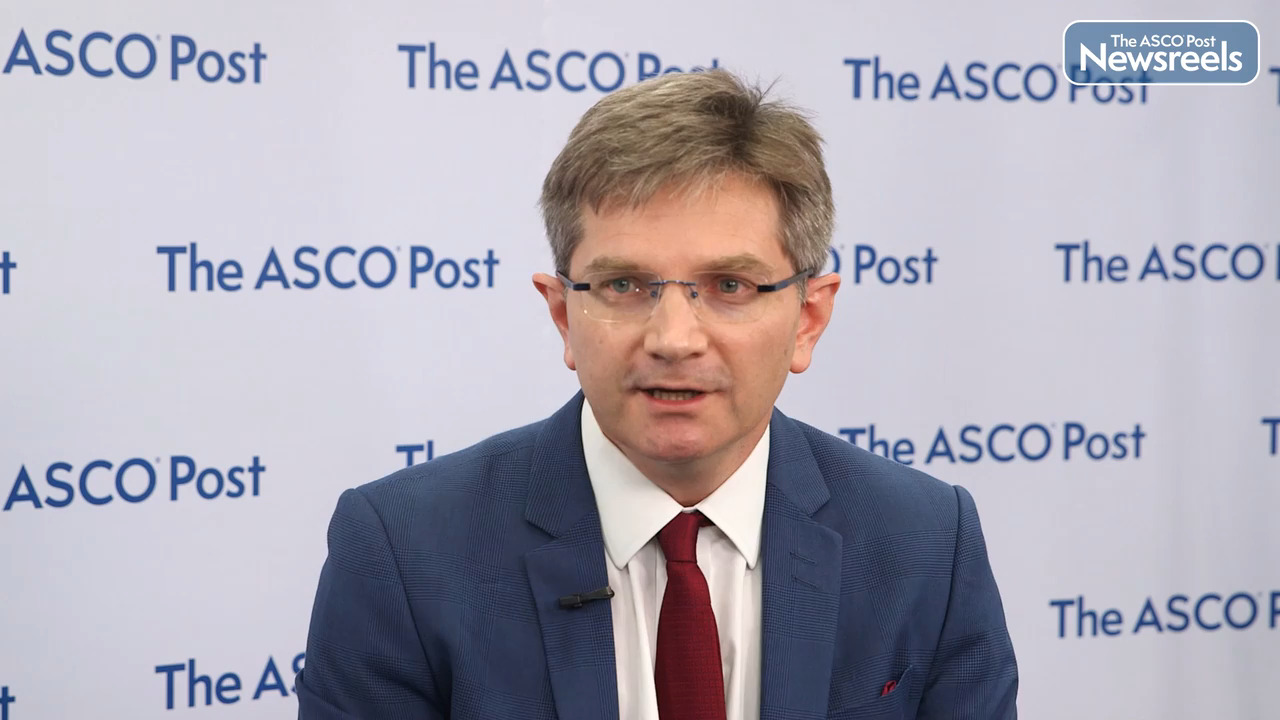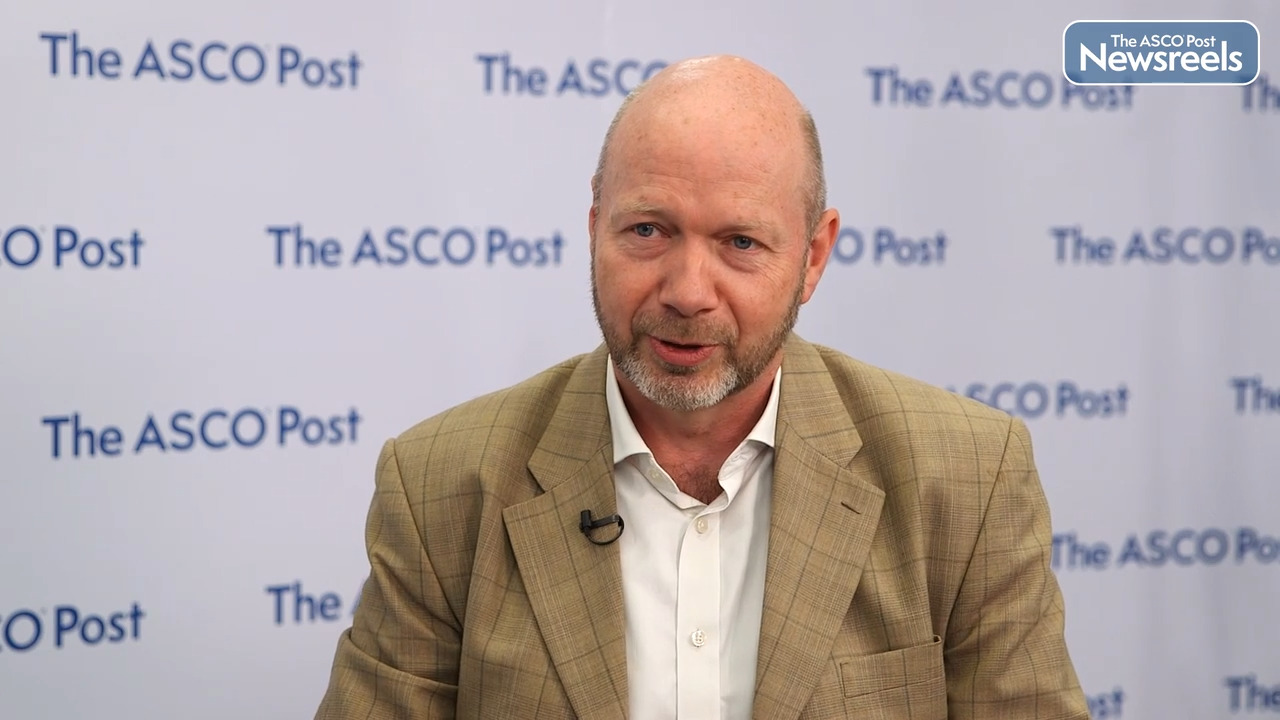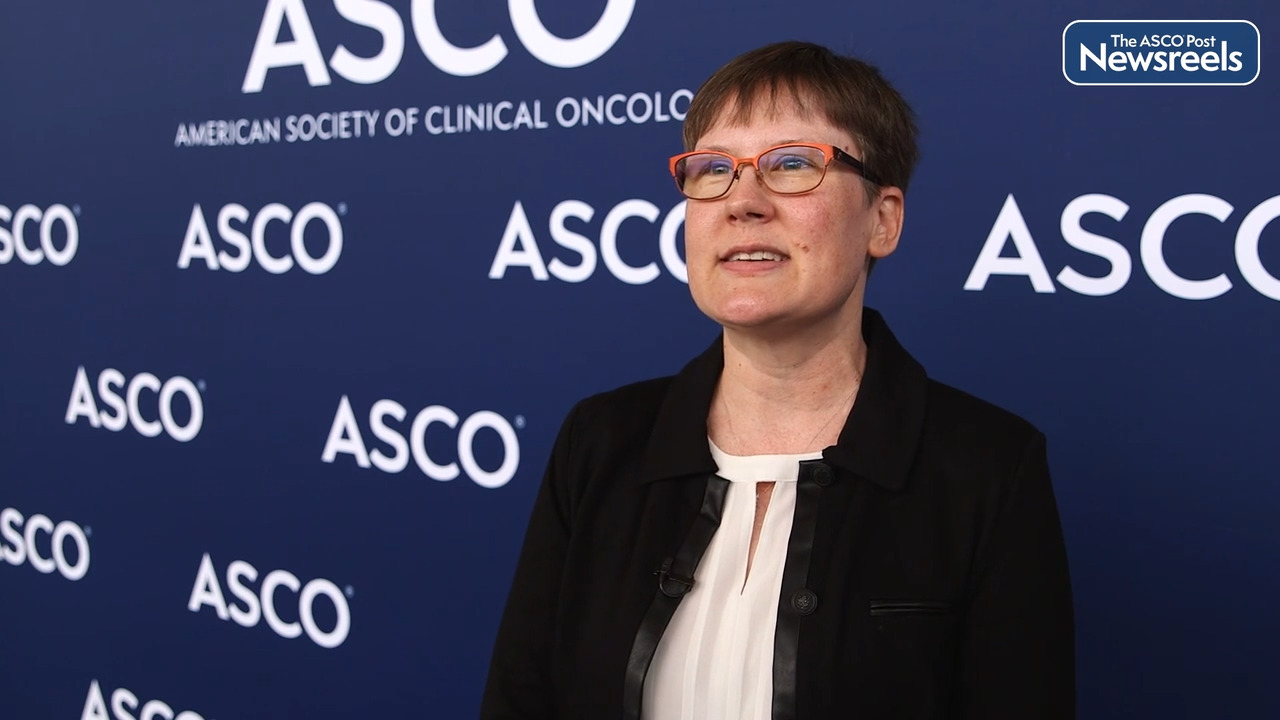Transcript
Disclaimer: This video transcript has not been proofread or edited and may contain errors.
Ursula A. Matulonis:
... again, it is so great to see you.
Domenica Lorusso:
It's my great pleasure to be here.
Ursula A. Matulonis:
It really is just wonderful to see you here in Chicago. And congratulations on all of your trials that you are leading. I mean, you are a rockstar.
Domenica Lorusso:
Oh no, no, this is not, but I am so proud to be part... It's huge to be part of this particular moment of clinical research in gynecological malignancies.
Ursula A. Matulonis:
Yeah.
Domenica Lorusso:
We are lucky we are living an unprecedented moment for our tumors.
Ursula A. Matulonis:
I agree with you. So tell us about the MITO 23 study about the mechanism of action of Trabectedin, because we don't have that drug available in the United States for ovarian cancer and then kind of the rationale for the trial design.
Domenica Lorusso:
So we have Trabectedin in Europe, it has been approved in combination with the pegylated liposomal doxorubicin for the treatment of platinum-sensitive recurrent ovarian cancer. Trabectedin is a very interesting drug from my point of view, because it is a mineral DNA group binding, but also it's a several interaction with the micro environment, including some immunological action and anti antigenic action. So it's a complex drug. Preliminary data in clinical cell line of ovarian cancer, but also clinical data in sarcoma patient suggest the peculiar efficacy of Trabectedin in BRCA mutation because of the genes involved in HRR seems to play a particular role in the mechanism of action. And we are the preliminary phase two single agent trial meet of 15, which we have published in which we reported 40% of the role response rate in a population of 100 BRCA mute or BRCAness phenotype patient. And this constitute the rationale in our opinion, to test this drug against the standard of care in the same population, BRCA and BRCAness. The definition of BRCAness was clinical in the trial. So patients who have received and responded to at least two prior chemotherapy lines, platinum based.
Ursula A. Matulonis:
And the trial design, tell us about the trial design of really Trabectedin alone this time. So not combined with PLD yeah, versus standard treatment.
Domenica Lorusso:
Exactly. It is a randomized phase treat trial. It is an academic trial. So let you know, is becoming a difficult and difficult to perform academic trial now. And this is a academic trial completely sponsored by my hospital and we enrolled 244 patients. Trabectedin was a single agent, as you say was the experimental arm. And the control alarm was represented by physician choice chemotherapy between carboplatin, weekly paclitaxel, pegylated liposomal doxorubicin, gemcitabine, and topotecan, so different option.
Domenica Lorusso:
The statistical hypothesis was to design a superiority trial. We want to demonstrate the superiority of Trabectedin in over standard for overall survival, which was the primary endpoint. And unfortunately we failed. Trabectedin did not report over survival benefit with respect to standard arm and did not report PFS benefit with respect to standard arm did not increase response rates. So all the endpoints primary and secondary were unfortunately negative. And I have to say in some exploratory analysis, we try to evaluate the benefit of Trabectedin with respect to platinum, or no platinum in the control arm. And also in this case, we did not report any superiority, but I have to say that the observation was 0.8 for carboplatin comparison and 0.8 now for non-platinum comparison. So Trabectedin is not superior to standard of care. No, no, no way.
Ursula A. Matulonis:
It's a really tough population. Yeah. To treat.
Domenica Lorusso:
Yeah. Well, we perform the forest plots analysis trying to address if there were some signals of heterogeneity of the efficacy in some of the subgroups BRCA mute or BRCAness type, the number of prior line of treatment platinum free interval, but we were not able to identify any population of benefit more than standard from Trabectedin.
Ursula A. Matulonis:
Gotcha. Based upon these results, how do you see the use of Trabectedin moving forward?
Domenica Lorusso:
Also, the trial is negative. There is no possibility to transform a negative superiority trial in a non-inferiority trial. This is my personal point of view, even though sometimes we see such conclusions. So Trabectedin is not superior, but if you simply look at the medium PFS, median OS, response rate in a so heavily treated population, because in our trial, 72% of patients have received at least three prior line of therapy. And 35% of them have already received PARP inhibitor.
Domenica Lorusso:
So this is even pretreated PARP and chemotherapy population. If you simply look at PFS, SOS, and response rate, there are, in my opinion, clear signals of activity of Trabectedin in single agent. What means for the clinician? We can use the drug in Europe only in combination with PLD. But PLD is moving earlier in the treatment algorithm because we combine it with platinum in patient who require platinum re treatment. So in this scenario when possible, I think that Trabectedin in single agent can be offered as an alternative option. Or in patient to start the combo. And you can stop PLD for any toxicity reason. The clinician can be confident that moving on with Trabectedin in single agent, they are offering an active drug to the patient.
Ursula A. Matulonis:
Yeah. I think this is a, even though it's, there are some negative results here. I think this is a really important trial. I mean, I think it's an important trial because it's an academic trial. And as you said, these are very hard to do. So congratulations. And I think there's really a lot to be learned here and that what you found is going to really help patients.
Domenica Lorusso:
I think we offer a great opportunity to our patient. I think that this drug would merit probably further exploration, but the most important thing also, I have to say it was the possibility to perform an academic trial in a lot of center who work for the pleasure of doing research. Because it was not supported the company provided the drug free of charge, but there were no compensation for patient treatment. And I think this trial represents a good opportunity because the academic can do high quality clinical research.
Ursula A. Matulonis:
Exactly. Thank you for being here today and congratulations on the results you presented and it's great to see you.
Domenica Lorusso:
My great pleasure as always. Thank you so much.
Ursula A. Matulonis:
You're welcome.
